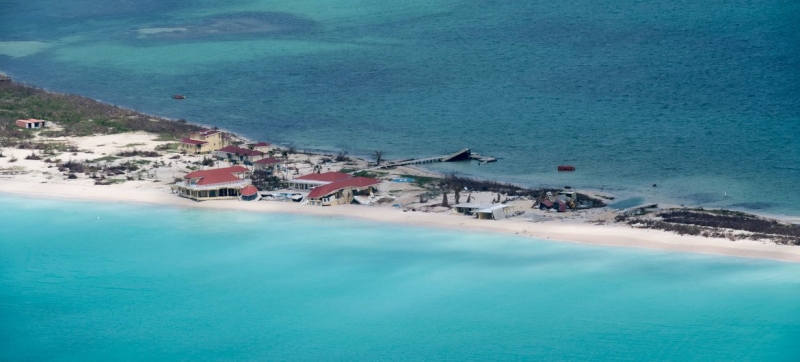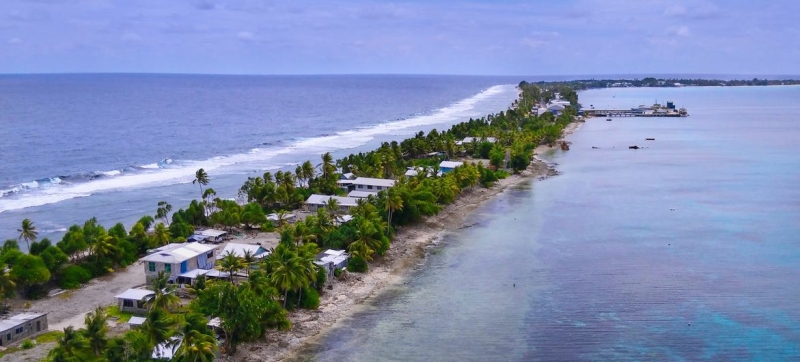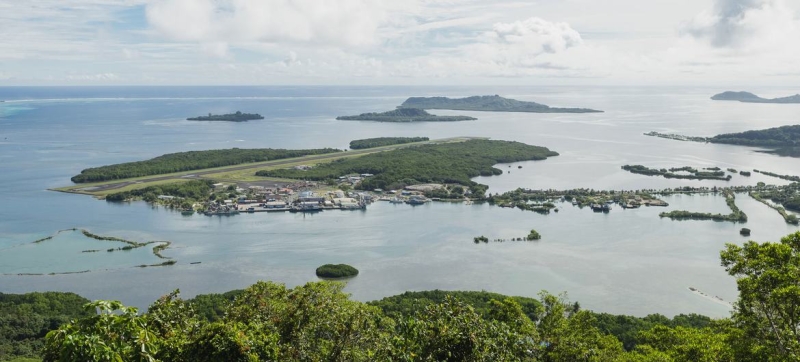
Antigua and Barbuda suffered the devastating effects of Hurricanes Irma and Maria, which struck the Caribbean in 2017. UN Conference in Antigua and Barbuda: Small Island States Head for Sustainable Development Economic Development
Leaders of small island developing states from around the world will gather on the shores of Antigua and Barbuda in the Caribbean from May 24 to 27 to unveil a new plan of action to achieve the Sustainable Development Goals (SDGs) by 2030 and enlist the support of the international community in its implementation.
The fourth session of the International Conference on Small Island Developing States (SIDS) will bring together governments, the UN, civil society, the private sector and youth activists. Their main tasks are to translate ideas into action, advance new commitments and discuss key issues facing a group of countries that are particularly vulnerable to climate change.
On the Frontlines of the Climate Crisis
There are 39 small island developing states in the world. They are on the front lines of climate change and are subject to environmental vulnerability. These countries face natural disasters, climate shocks, and risks associated with rising sea levels.
Small island developing states with small domestic markets are vulnerable to economic shocks and recessions. Other challenges include rapid population growth with limited access to basic services and jobs.
A matter of survival
Residents of Antigua and Barbuda are no strangers to climate risks, having suffered the devastating effects of Hurricanes Irma and Maria, which struck the Caribbean in 2017. In an interview with the United Nations News Service, Prime Minister Gaston Browne said such external shocks are “literally destroying our economy and damaging our infrastructure, our buildings, our homes.”
He stressed that international cooperation to combat global warming is essential if small island states are to survive in the coming decades.

SIDS face natural disasters, climate shocks, and risks associated with rising sea levels. In the photo: Tuvalu.
These countries also face high import and export costs, scarcity of natural resources, population densities above the world average, high levels of external debt, and limited access to finance.
In 2014, SIDS agreed on the Samoa Pathway. This action plan consists of 124 points that address sustainable economic development, climate change, health and nutrition issues. In addition, the UN body dealing with the issues of least developed countries and landlocked developing countries was expanded to include small island states.
Time for Action
UN Under-Secretary-General and UN High Representative for Least Developed Countries, Landlocked Developing Countries and Small Island Developing States Rabab Fatima told UN News Service that she would “unveil a bold new plan of action to build the resilience of 39 small island states to address the world’s most pressing challenges and achieve the SDGs.”
She highlighted the consensus that has already formed around an agreed program of action with which delegates will return to their countries. The new agenda will set out the sustainable development goals of small island states for the coming decade.
Read also:
Digital technologies drive development in small island states
Fatima said non-governmental organizations, civil society, government and the private sector will have a role to play.
She said the new strategy will help, among other things, scale up action on combat climate change, reduce disaster risks, and promote science, technology, innovation and digitalization. This will require strong support from the international community.
Ambitious Goals
As small island developing countries states can make long-term plans in conditions of limited resources and great vulnerability?
Fatima said island countries have ambitious goals for the energy transition. “Many island nations, including the Solomon Islands, Vanuatu and Antigua and Barbuda, have launched roadmaps to achieve 100 percent renewable energy by 2030,” she noted.

How small island developing states can plan for the long term in the face of limited resources and great vulnerability?
Pacific countries, including Fiji, Samoa, Tonga and the Federated States of Micronesia, have made major investments in solar, wind and hydropower projects with the support of financial institutions including the Asian Development Bank.
In the Caribbean, Jamaica and Grenada are seeing a rise in rooftop solar power plants, as well as wind farms and other renewable energy projects.
International Support
“In addition to advancing the global sustainable development agenda, it is my sincere hope that the Fourth SIDS Conference will serve as a catalyst for positive change, leading to to significant improvements in the lives of the people of small island developing states,” said Fatima. Development, Civil Society and SIDS.
Fatima would like to see commitments from other countries and organizations to provide funding, technical assistance and capacity building. She hopes that small island developing States will receive the necessary tools and support to achieve their development plans.
